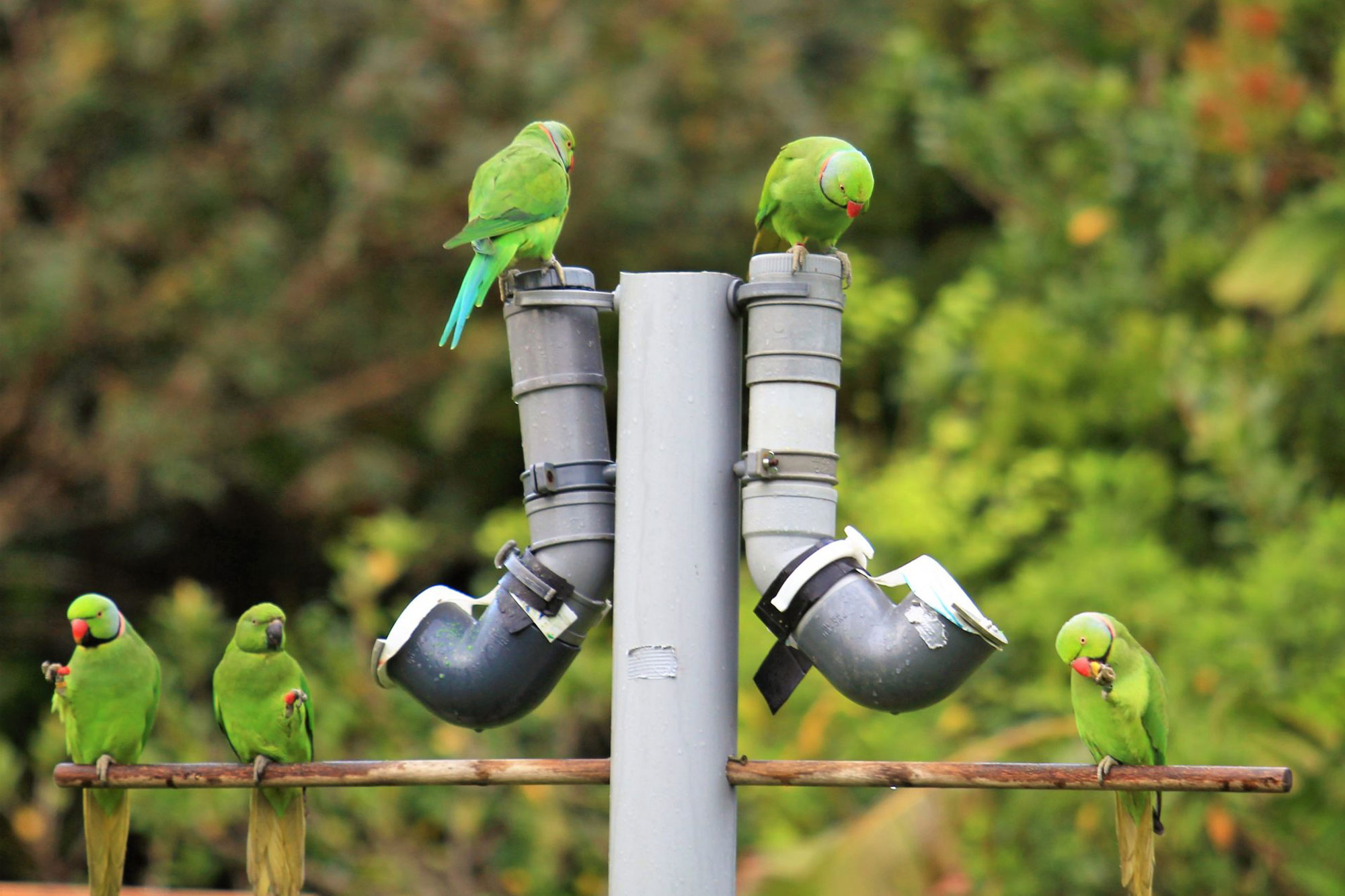A study into the effectiveness of disinfecting birds’ nests, carried out by the Durrell Institute of Conservation and Ecology (DICE), has led to a breakthrough in the understanding of biosecurity measures for the endangered echo parakeet in Mauritius.
The research team found that annual disinfection of parakeet nest sites prior to the breeding season, intended to reduce the spread of infectious disease in endangered parrot species, didn’t have the impact conservationists expected or, indeed, had hoped for, leading to recommendation for a different approach.
Psittacine Beak and Feather Disease (PBFD) is a globally emerging infectious disease affecting parrot species, and researchers were looking at methods to reduce infection rates in the endangered birds. The research team found 83% of the fledglings in untreated nests survived compared to 79% in the treated nests. The long-term study of echo parakeets in Mauritius assessed how effective the disinfection measures were in reducing the probability of a nest becoming infected with PBFD.
Project lead Debbie Fogell, a PhD student from DICE working in collaboration with ZSL’s (Zoological Society of London) Institute of Zoology said, “The desperate need of conservationists to respond to infectious disease outbreaks in wildlife populations, especially those that are small or recovering, often means field protocols need to be implemented before critical evaluation. Our research findings will help us improve biosecurity measures implemented in Mauritius in order to better support fledging success.”
Conservationists have battled against Emerging Infectious Diseases (EIDs), which are drivers of global extinction of threatened species. The research team at DICE assessed the efficiency of biosecurity protocols in managing PBFD. Psittaciformes (parrots) are one of the most vulnerable avian orders, with over a quarter of all extant species recognised as in need of conservation action and 75% of species in population decline.
Debbie Fogell and her colleagues recommend that it is essential to continue to evaluate population management techniques to ensure they are achieving the desired outcomes. The research illustrates that conservation activities should be carefully considered through targeted monitoring via further research and development, with conclusions prioritising conservation objectives.
‘Hygiene and biosecurity protocols reduce infection prevalence but do not improve fledging success in an endangered parrot‘ by Deborah Fogell, Jim Groombridge and Simon Tollington, DICE, University of Kent, Stefano Canessa, Ghent University, Sion Henshaw, Nicolas Zuel and Carl G Jones, Mauritian Wildlife Foundation, Andrew Greenwood, International Zoo Veterinary Group and John G Ewen, Institute of Zoology, is published in Scientific Reports.

